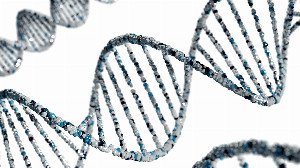Dessy Lutfiasari, Alfika Awatiszahro
EFFECT OF WATER SPINACH (Ipomoea aquatica) CONSUMPTION ON HEMOGLOBIN LEVELS IN PREGNANT WOMEN
Introduction
Effect of water spinach (ipomoea aquatica) consumption on hemoglobin levels in pregnant women. Study the effect of water spinach (Ipomoea aquatica) on hemoglobin levels in pregnant women. Combat iron-deficiency anemia, a common problem, using nutritional intervention. Pre-experimental design.
Abstract
Anemia is a common condition among pregnant women, primarily caused by iron deficiency, and may lead to complications during pregnancy and childbirth. The 2023 Indonesian Health Survey (SKI) reported that 27.7% of pregnant women still experience anemia. Nutritional interventions using vegetables rich in iron and vitamin C, such as water spinach (Ipomoea aquatica), may provide an alternative strategy to improve hemoglobin levels. This study aimed to determine the effect of water spinach consumption on hemoglobin levels in pregnant women. This research used A pre-experimental design with a one-group pretest–posttest approach. The research sample consisted of 30 pregnant women. Hemoglobin levels were measured using a hemoglobin testing device, and observations were recorded on structured sheets.
Review
This study addresses a highly relevant and critical public health concern: anemia among pregnant women, especially given the reported prevalence in Indonesia. The aim to investigate the effect of water spinach (Ipomoea aquatica) consumption as a nutritional intervention to improve hemoglobin levels is timely and aligns with the need for accessible, food-based strategies. The hypothesis that a vegetable rich in iron and vitamin C could offer a viable alternative to combat iron deficiency anemia is well-founded and warrants investigation, presenting a promising area for research in maternal health. Methodologically, the study adopts a pre-experimental design with a one-group pretest-posttest approach involving 30 pregnant women, and hemoglobin levels are measured using a dedicated device. This design provides an initial snapshot of changes within the study population following an intervention. The clear objective and the direct measurement of hemoglobin are strengths that contribute to the study's focused approach. However, the abstract lacks crucial details regarding the intervention itself, such as the duration of water spinach consumption, the daily dosage or frequency, and how compliance was monitored, which are essential for evaluating the rigor and replicability of the intervention. While this preliminary investigation offers valuable insights into a potential dietary intervention, the pre-experimental design inherently limits the ability to establish a causal relationship. The absence of a control group means that any observed changes in hemoglobin levels cannot be definitively attributed solely to water spinach consumption, as other confounding factors (e.g., natural variations, other dietary changes, or external influences) could also play a role. To strengthen the evidence, future research should consider more robust designs, such as randomized controlled trials, which include a control group and detail the intervention protocol thoroughly, to confirm the efficacy and generalizability of water spinach as an effective nutritional intervention for improving hemoglobin levels in pregnant women.
Full Text
You need to be logged in to view the full text and Download file of this article - EFFECT OF WATER SPINACH (Ipomoea aquatica) CONSUMPTION ON HEMOGLOBIN LEVELS IN PREGNANT WOMEN from Journal for Quality in Women's Health .
Login to View Full Text And DownloadComments
You need to be logged in to post a comment.
Top Blogs by Rating
Beyond Impatience: A Philosoph...
By Sciaria
Your Dynamic DNA: The Adapting...
By Sciaria
Is Electro Music the New Class...
By Sciaria
Favorite Blog
Beyond Impatience: A Philosoph...
By Sciaria
The Invisible Load: Unveiling...
By Sciaria
Is Electro Music the New Class...
By Sciaria



